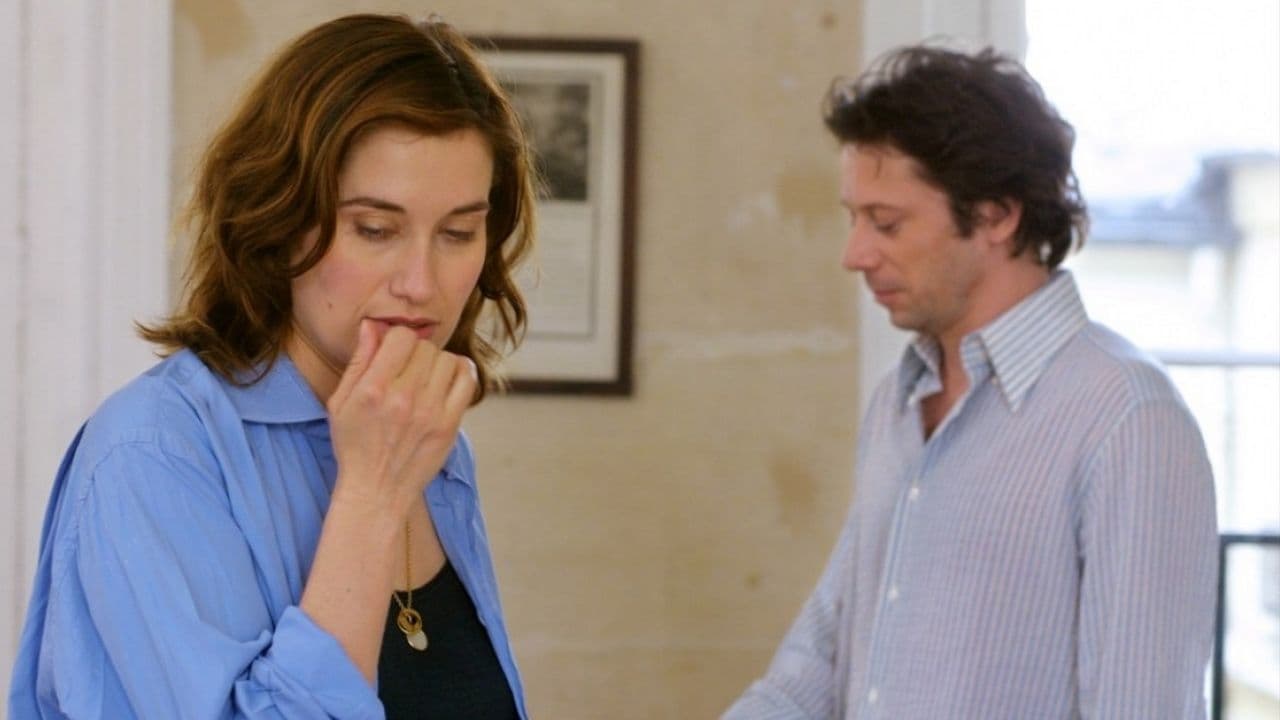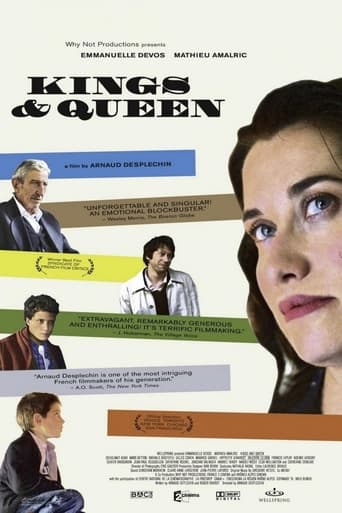

What a waste of my time!!!
... View MoreBrilliant and touching
... View MoreIn other words,this film is a surreal ride.
... View MoreIt is an exhilarating, distressing, funny and profound film, with one of the more memorable film scores in years,
... View MoreToo many secondary plot lines without a primary one. Too many hot buttons are pushed without any reason, they managed to stuff this boring film, that does not say anything, with every drama element that is out there: death, divorce, money issues, parenting problems, suicide, psychological problems, drug abuse, adoption, rejected love, traveling problems, sex, generations misunderstandings, robbery, legal issues, guns, medical ethics, "deep real love" You would think that it would make for an interesting movie, but hell no all these events are secondary to something primary which is not there. Boring. Not to mention that the "super-deep" (and super-long) lecture to the child at the end of the film is a total nonsense. Pity.Oh, forgot to mention: the actors, all of them, are quite good. That's what kept me from turning it off. To bad their talents went to waste, The film is well shot, too: the light, the motion etc. of every episode -- that's all in place. It's just the meaning that's missing.
... View MoreThere is SO much going on in this film, but it has rhythm, pace, a great soundtrack, and enjoyable, charismatic performances, that kept me engaged from the word go. The editing owes something to 60s Godard - lots of jump cuts in the dialogue scenes - and 80s Rohmer - anguished 30 somethings worrying about true love - and possibly, in its tour de force final sequence, a reference to La Jetee, which is also of course about memory, fate, and mortality. And then there is the rather bizarre Audrey reference which opens the film: as Nora steps out of a black car, clutching her morning coffee, clothed in black, her hair wound up on her head, the strains of Monn River sound. So far, so post-modern. This is is a film that is freighted with filmic, literary, theatrical (esp Shakespeare and the Tempest) and artistic allusions, but that uses these in service of a specific point: that these cultural references and allusions make the web of our being - that art is how we communicate to each other (notice that all the characters communicate through art - the gift Nora gives her father, the music Ismael dances to, the book the father writes - even the 'murder scene' is filmed through a highly stylised mise-en-scene): that 'artifice' can reveal the deepest and most moving of human emotions. It is a beautiful film that will move you and make you leave the cinema feeling transported. And Deneuve is just great! I love the bit where Ismael asks her if anyone has ever told her she's beautiful, and she gives a slight twist of her lips, sighs, and says, yes, she has heard that before. Just because something has become cliché, doesn't mean it's not true.
... View MoreNora (the devastating and luminous Emmanuelle Devos) is a single mother who suddenly has to care for her dying father (a successful writer straining to put the finishing touches on his last book, a memoir of sorts) on the eve of marrying her new suitor. Ismael (the fantastic Mathieu Amalric) is her "ex-boyfriend" who cared for her son most of the boy's life, and is a struggling musician who suddenly finds himself trapped in the loony bin thanks to an over-zealous sister, a bitter friend, and a "judicial error." Director Desplechin (this is the only film I have seen of his) does a nice job flipping back and forth between the utter bleakness and emotional hell of caring for a dying parent, and the absurd serio-comic-horror of being stuck in the "crazy hospital" against your will. There's a lot of play with psychoanalysis (highlighted by Catherine Denueve in a bit part as a psychiatrist) that is fun and illuminating to watch. There's speckles of romance, dark humor, nihilism, magic realism, and soap opera theatrics with lots of references to philosophy, mythology, and poetry that keep the film interesting and unpredictable even as its over two and a half hour run time tries your patience. There are plenty of revelations and big emotional payoffs here punctuated well with eclectic music choices (everything from classical pieces to some sort of catchy European hip-hop) and nice little surprises (Magalie Woch is delightful as the lovely suicidal mental patient who becomes smitten with Ismael). This utterly French film gives the viewer a lot to chew on, even if you have to gnaw through a bit of gristle before dining on the filet mignon.
... View More"Kings and Queen (Rois et reine)" is a deceptively beautiful looking exploration of the differences between appearances and substance.Our first impressions of each parallel character who seems to have no relation with any other character undergo a complete turn-around by the time we have finished circling around them in time and space at the end of the film, especially as we begin to realize they are unreliable, self-serving narrators of their own experiences.Each person is part of a very modern blended family, both by genetics and selection, and faces the most quotidian of life cycle decisions -- life, birth, marriage, paying bills, parent/child responsibilities, Laingian sanity and particularly death -- and makes a different choice how to handle them, whether active or passive, peremptorily or as fate.But each choice leads them to the next unexpected plateau of choices with guilt hanging on each move. For each, doing the right thing means something completely different as each responds differently to an emotional and physical crisis.Though psychoanalysis is drolly mocked as just another philosophy, each character may be eccentric or seriously crazy and undergoes Freudian traumatizations by family in casually cruel ways that alternate between funny and shocking (and sometimes absurd).Director/co-writer Arnaud Desplechin revels in the diversity of his characters, so that as their orbits collide they can hardly communicate because their frames of reference are so different.The acting brilliantly matches the unexpected revelations that flash back to let us know how each character got to be this person and the transformations to where they are going. Emmanuelle Devos as "Nora" lusciously fills the screen even as we find that her nonchalant beauty masks the devastation she leaves in her wake as it helps her use others for her selfish needs.Desplechin has frequently cited Woody Allen as an influence (and "Seinfeld"), and Mathieu Amalric's Ismaël is a tribute to that talkative, intellectual Jewish persona and Philip Roth is mentioned as well, though this character is much more up on hip pop music and surprisingly matures as he gains far more humanity than his New York inspirations.The film is long and slow, but curiosity about how each character got to where the film started is involving.It's impossible to keep up with all the erudite references to poetry (Desplechin says the title comes from a chess metaphor in a French poem: "King without kingdom/ Queen without a scene/ Castle broken/ Bishop betrayed/ Fool as a brave man"), literature, mythology, art, music and film ("Moon River" seems to be used frequently these days).Eric Gautier's cinematography is sensual and is particularly dreamy when an awful event occurs.The production design creates illustrative environments for each person and family, as every object around each character has ironic counterpoint to the dialog.The soundtrack eclectically extends from electronica to klezmer to hip hop to singer/songwriters Paul Weller and Randy Newman to classical and more that reflect the characters' psychological mise en scenes.
... View More